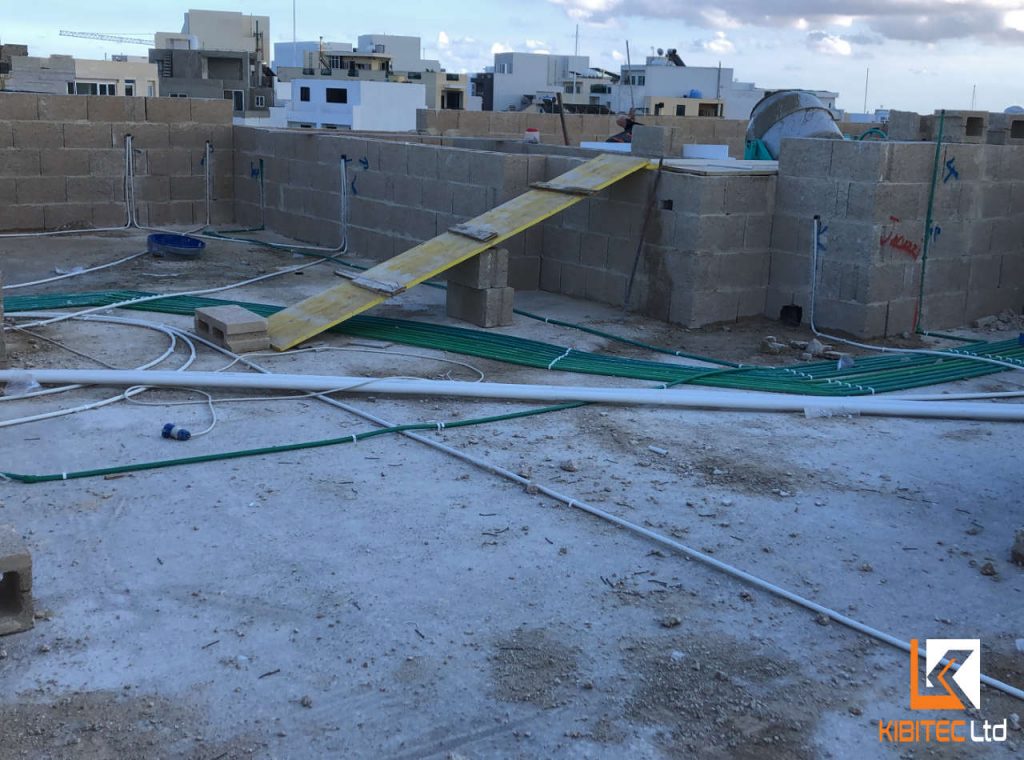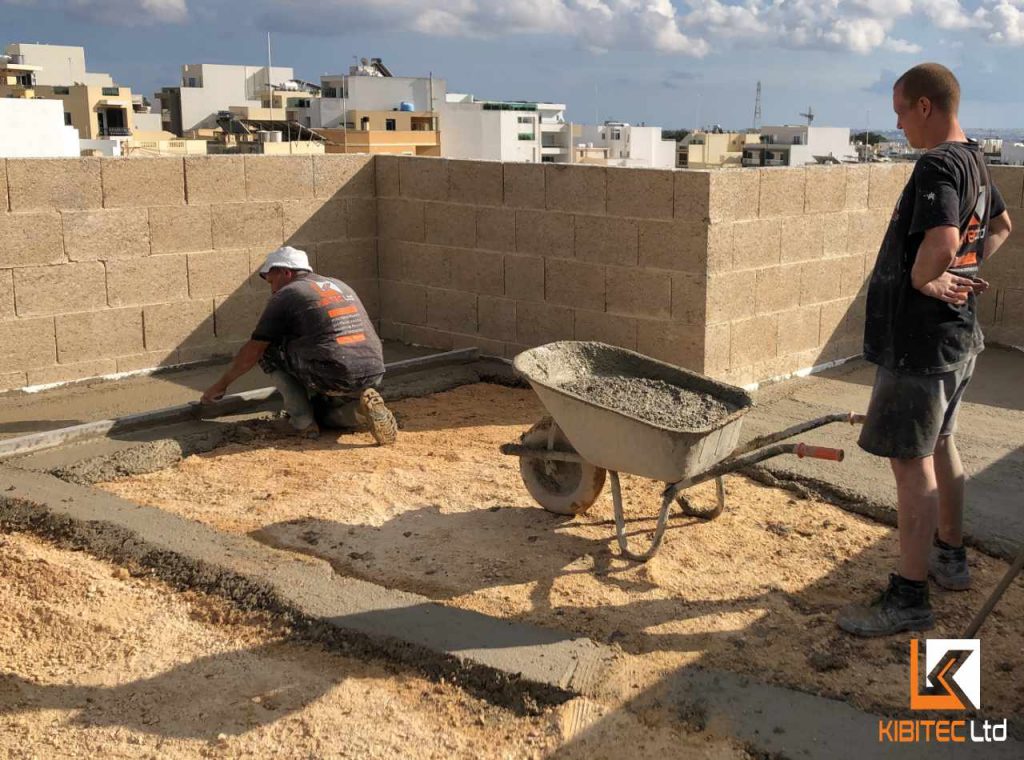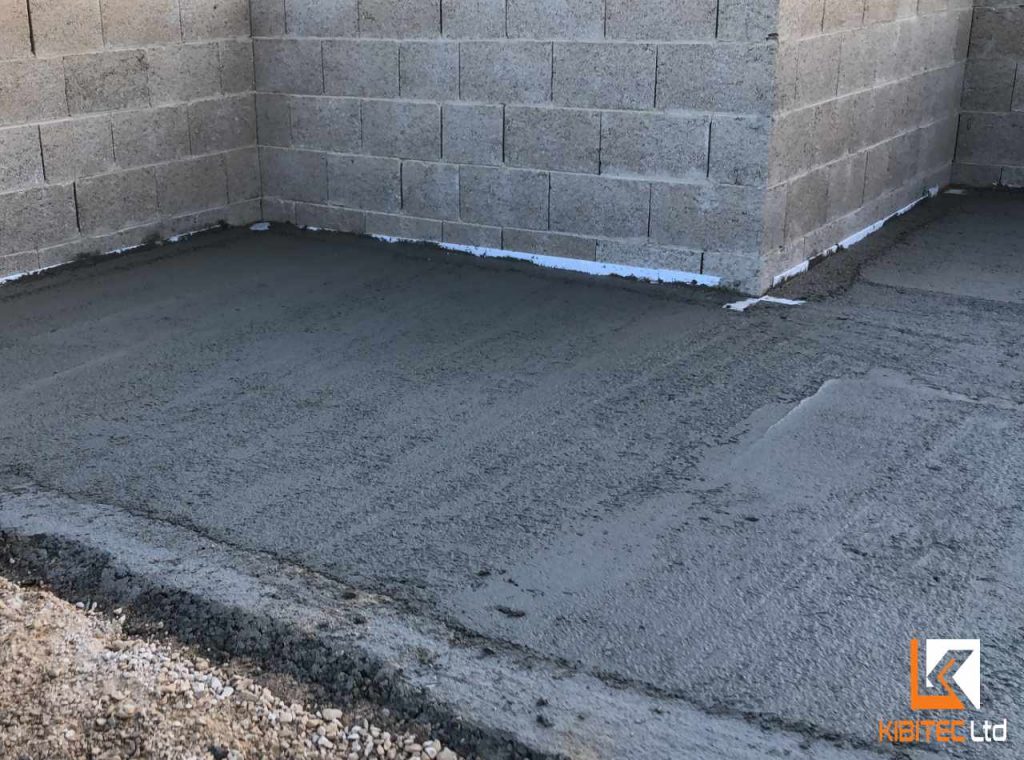Generally, how thick can Screed be? If you are a professional, you might have come across this question. Let us learn more about Screed and how thick can Screed be? for your project. A floor screed is a cementitious substance composed of sharp sand and cement in a 1:3 or 1:4.5 ratio. Screed may be used on a prefabricated concrete floor unit or a solid in-situ concrete ground floor slab.

How thick can Screed be: Application of Screed
The Screed can either be laid unbonded onto an appropriate damp-proof membrane installed over the slab or directly bonded to the base. A layer of stiff insulation material may be covered with it as a floating finish as an alternative. For underfloor heating, this application works well with cast-in water pipes.
If reinforcement is needed, this can be in fine metal mesh or use fibres such as polypropylene or glass mesh. The Screed can be floated or left to create a smooth surface to install the required flooring finish. Compared to mixed on-site screeds, ready-mixed screeds containing sand and cement provide more quality assurance and a more consistent product.

How thick can a Screed be?: Screed types
How thick can Screed be: Cement sand screeds
These conventional screeds, when appropriately specified, are suitable for all purposes. The big drawback is the drying period, which is 24 hours for every millimetre of screed thickness up to 50mm thick. You can find additional advice on the drying period in the manufactures instructions.
How thick can Screed be: Calcium sulfate pumpable self-smoothing screeds
You have the option of laying these screeds bonded or unbonded. Compared to cement sand screeds, they have a substantially higher coverage rate, about 2000m2/day. Because calcium sulfate corrodes steel when exposed to moisture, it must not be used with reinforcement. Use in damp places is often not recommended.

How thick can a screed be?: leveling Screed
There may be a variety of reasons to use levelling screed. It could give a smoother, flatter surface than the structural slab can deliver. Screeds for levelling also offer falls or a finishing area that can fit different flooring.
How thick can Screed be: Bonded cement sand screed
A bonded levelling screed should have a minimum thickness of 25mm. The stated thickness should generally be 40mm (with a tolerance of 15mm) to allow for potential variations in the completed levels of the structural concrete. This guarantees a screed with a minimum thickness of 25mm. The following alternatives are available to reduce the risk of debonding where the bonded Screed must be larger than 40mm:
- To minimise shrinking, use modified Screed or additives.
- Apply fine concrete Screed to lower the chance of shrinkage.
How thick can Screed be: Bonded calcium sulfate pumpable self-smoothing Screed
Recommended minimum thickness for a bonded screed should be 25mm. Manufacturers quote maximum thicknesses of up to 80mm; therefore, there are fewer restrictions on the overall thickness.
How thick can Screed be: Unbonded cement sand screed
The stipulated design thickness should be at least 70mm to account for variations in completed levels, as the screed thickness should be at least 50mm.
How thick can Screed be: Unbonded calcium sulfate pumpable self-smoothing Screed
The stipulated layout thickness should be at least 45mm with a tolerance of ±15mm. The screed thickness cannot be less than 30mm to account for finished-level variations.

How thick can a Screed be: wearing screed for structural topping?
How thick can Screed be: Bonded Screed
In contrast to a levelling screed, which should have a minimum thickness of 25mm, bonded-wearing screeds should have a minimum thickness of 20mm.
The suggested thickness is 40mm, allowing for variations in the structural concrete’s finishing levels.
How thick can Screed be: Unbonded Screed
To reduce the chance of curling, the wearing Screed should be at least 100mm thick; you should prioritise making it 150mm thick.

Now you know, How thick can a screed be? If you want to get a new floor that will be clean, modern, and can transform your entire commercial facility.
Get professional help from KIBITEC. Get in touch with KIBITEC for a free quotation.





